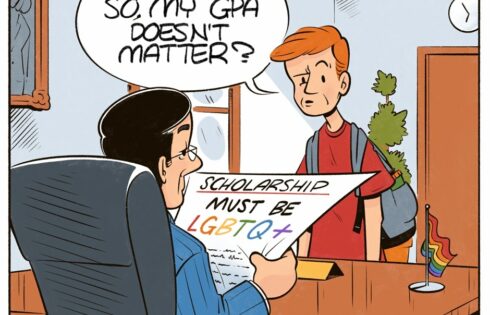 The Maryland state senate will introduce legislation soon that would allow undocumented residents to attend Maryland colleges at a reduced rate.
The Maryland state senate will introduce legislation soon that would allow undocumented residents to attend Maryland colleges at a reduced rate.
The “Maryland DREAM Act” would put Maryland in league with 10 other states that provide in-state tuition to students who are not legal residents. The act would apply to students who spent have spent at least three years in, and received a high school diploma from, a Maryland secondary school. Maryland is currently home to an estimated 250,000 illegal immigrants.
“In the next 20 years, 30 percent of high school graduates in the state are going to be Hispanic, and a number of them are going to be undocumented,” said State Sen. Richard Madaleno, who is hoping to introduce the bill this session. “We have to find a way to exploit their skills and to help them transition into being Americans.”
Undocumented students have become a battleground issue for states in the past year. In November, California’s Supreme Court ruled the state’s in-state tuition program for undocumented students constitutional. Other states, like Georgia, have gone the other way — in October, the state barred illegal immigrants from the state’s top five public universities.
In December, the federal DREAM Act, which would have provided a provisional path to citizenship for qualifying undocumented residents, failed to make it through Congress.
“Unfortunately for the general assembly, we can’t help them become citizens, but we can help them become productive,” Mendaleno said. “Why not give these children the opportunity to experience the American dream?”
Critics of the federal DREAM Act argued the legislation would cost taxpayers. The Center for Immigration Studies estimated DREAM would cost taxpayers $6.2 billion a year, based on a number of factors, but particularly the cost of higher education — a core element of the bill.
Delegate Anthony O’Donnell has similar problems with the economics of the Maryland DREAM bill.
“We can’t pay our current bills,” he said, “and they’re asking for a taxpayer subsidy — $14,000 to $16,000 per student [at a four year university] for people who, legally, cannot pay taxes.”
Maryland has a $2 billion budget shortfall that could lead to major layoffs of state employees or major cuts in education funding in the next few years.
State Sen. Victor Ramirez has proposed another version of the Maryland DREAM Act, with the condition that the student’s parents must be taxpayers. But since a child who was brought here illegally would likely have parents who were illegal immigrants, neither Madaleno nor O’Donnell is quite sure about how this would work.
“How do you pay taxes without a social security number?” O’Donnell said.
“I’m still curious about that provision,” Madaleno said. “I can’t give you that answer. On the other hand, I live in a very immigrant heavy community and I have to say I’ve never seen anyone say, in a store, ‘I’m not here legally, I don’t pay the sales tax.’ There are a lot of factors.”
A bill similar to the Maryland DREAM Act was actually approved by the General Assembly in 2003, but then vetoed by Gov. Bob Ehrlich. If it passes this time, Democratic Gov. Martin O’Malley is more likely to sign off on the bill.
Both Madaleno and O’Donnell agreed the Maryland DREAM act could attract illegal immigrants to the state, making Maryland, as some have called it, “a sanctuary state” — which Madaleno welcomes.
“If they do come here [because of the Maryland DREAM act],” he said. “I don’t mean to be difficult, but the better for us. Immigration is the whole American story.”
O’Donnell, however, believes in-state benefits for undocumented students will exacerbate existing problems.
“I’m not coldhearted but I believe the Maryland DREAM act incentivizes breaking the law, while other states are getting busy enforcing the law,” O’Donnell said. “Maryland kids are incurring enough difficulties getting into Maryland schools, and every time you take up a seat, you’ve gotta bump someone else out.”
Kate Havard is a junior at St. John’s College and a member of the Student Free Press Association.
Like The College Fix on Facebook / Follow us on Twitter




Please join the conversation about our stories on Facebook, Twitter, Instagram, Reddit, MeWe, Rumble, Gab, Minds and Gettr.